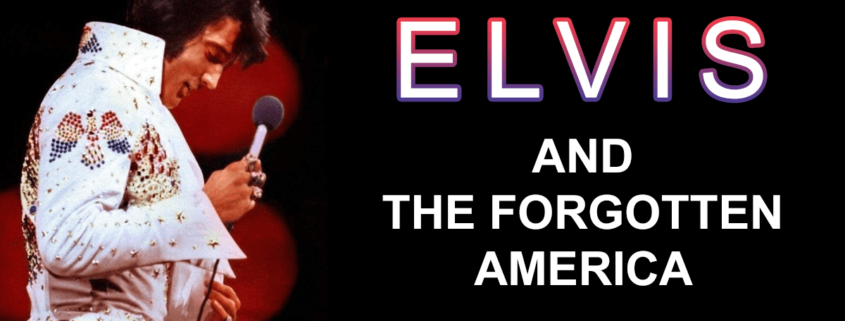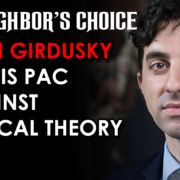Elvis and the Forgotten America
There’s something to be said about the lack of pop culture icons in our time. If anything at all, it is indicative of the lack of charisma amongst those who are appointed as role models in culture. It’s as if we’re all attempting to live out our bland public school textbooks; the element of unpredictability is either ignored or not considered. The tendency to stick to the rules is more powerful than ever. There is no positive, hopeful energy found in modern movies, music, and literature. Where has that energy to create against all odds gone?
Perhaps the first and last real embodiment of America was none other than Elvis Presley. In the early stages of the booming post-war period, Elvis sang and recorded “That’s All Right,” capturing the hearts of millions of young Americans. The record became a radio hit and propelled Elvis to overnight fame. No one had ever heard a white boy sing like a black man before, the newspapers said. Still today, Elvis’ rise to fame is attributed to him “stealing” black music. But that is a superficial observation at best. Elvis was more than just a white boy imitating black music.
There was once a time when positive energy radiated from America. And it was, in many ways, exemplified by Elvis’ transformation of Arthur Crudup’s song about letting go into one of carefree boldness and joy in spite of the circumstances. Elvis took Crudup’s song and in a break from a recording session at Sam Phillips’ studio, and in typical fashion, he and his bandmates started fooling around with it. The way Elvis was performing got Phillips interested. The slow blues song was now sped up into a rockabilly and the lyrics were drastically changed to reflect a young boy moving out into the unknown world while assuring Mama that it’ll be all right.
The risky courage of a boy venturing out of a small town and into the city reflected the daringness to take on the world and challenge the dull system of stagnation. Many called this the “American Dream.” To accomplish this dream one had to be “crazy,” and upon achieving this dream, one was deemed a “genius.” The Wright brothers, Nikola Tesla, Henry Ford, they were all called crazy at one point. How can a man fly? How could average people drive around in mechanical contraptions? Ridiculous! But they all did it against insurmountable odds. How they achieved their goals are unique to each person, but one thing they didn’t do was go by the book.
The impetus to create against all odds is an unconscious human reenactment of the Christian story. What drives a young boy to make himself vulnerable in his adventure into the unknown? It certainly isn’t the pagan myths of might and conquest. If the young boy were to imitate the pagan myths then he wouldn’t attract hordes of young admirers and elderly scorn, instead, he would attract and compete with powerful influencers sitting at the establishment tables. Vulnerability seems to be the key difference here. The young boy from Mississippi becomes a Christlike figure in his willingness to wear his heart on his sleeve and sing joyfully to the crowd. Maybe that’s another reason—besides the pelvic thrusting and female screaming—why the traditionalists became so mimetically afraid of Elvis.
But it’s not just the act of facing the unknown that’s Christlike. Above all, it’s the act of creating for reconciliation that makes an artist vulnerable. In the years before his death, the performance of “An American Trilogy” would become not just an act of creation but also Elvis’ prayer of reconciliation. Perhaps no other song is needed today than this medley wherein the spiritual side of the South, the Union, and the African American community is emphasized and combined to unapologetically proclaim the unifying Christian root of what makes up America. And perhaps no other sight is needed than the figure in glittering white, emblazoned with red and blue eagles, singing that medley with a powerful, otherworldly voice.
Such a sentiment is virtually impossible in today’s America pervaded by critical race theory, which teaches human beings, made in God’s image, to hate each other based on skin tone and historical grievances. In fact, having any kind of disposition towards reconciliation is considered “cringe” by Generation Z. Why? Certainly, media manipulation and nihilistic indoctrination in academia play a large part. But something that is largely ignored is how America, as the years went by, allowed itself to come under the influence of gatekeepers whose only talent lay in regulation if not outright obstruction.
If the recent Elvis movie and other sources are to be believed, Elvis wanted to take his performance to the world, but time and time again he would be denied the right to do so by his manipulative manager Colonel Tom Parker. Elvis would also be relegated to performing in Las Vegas because Col. Parker, in order to settle his gambling debts, signed Elvis off to a long hotel contract. These and other issues made sure Elvis never went out into the world and blossom into the megastar he was meant to be. Today, America, like Elvis, is run by countless Colonel Parkers and has resigned and confined itself to being a sad old nostalgia act.
If one suffers through the crowd of Karens, snitches, and Colonel Parkers, one can find Elvis performing in a corner somewhere, on an unapproachable prison-like stage, his transformative talent only accessible to a few. If America is to return to the vision espoused by the founding fathers, Americans must find a way to transcend its jailers who are the countless bureaucrats, celebrities, influencers, and corporate press mythmakers by imitating the spirit of Ford, Tesla, and the Wright brothers, i.e. great personalities who did not wait for gatekeeper approval before embarking on life-changing innovations. Above all, America must imitate Christ who said:
You are the light of the world. A town built on a hill cannot be hidden. Neither do people light a lamp and put it under a bowl. Instead they put it on its stand, and it gives light to everyone in the house. In the same way, let your light shine before others, that they may see your good deeds and glorify your Father in heaven.
—Matthew 5:14-16 (NIV)
By shaking off the chains of gatekeepers, by imitating Christ, and by rediscovering the Christian spirit of creating for reconciliation and healing, Elvis might still return to the building for an encore.












Leave a Reply
Want to join the discussion?Feel free to contribute!